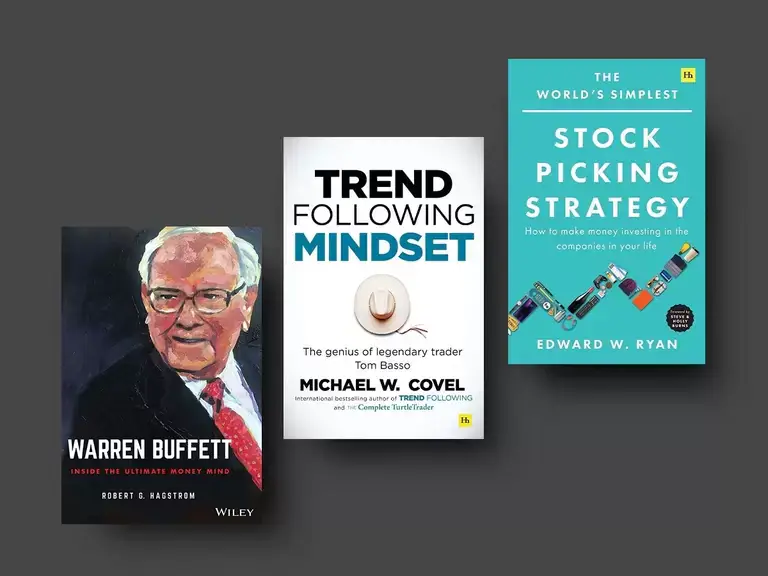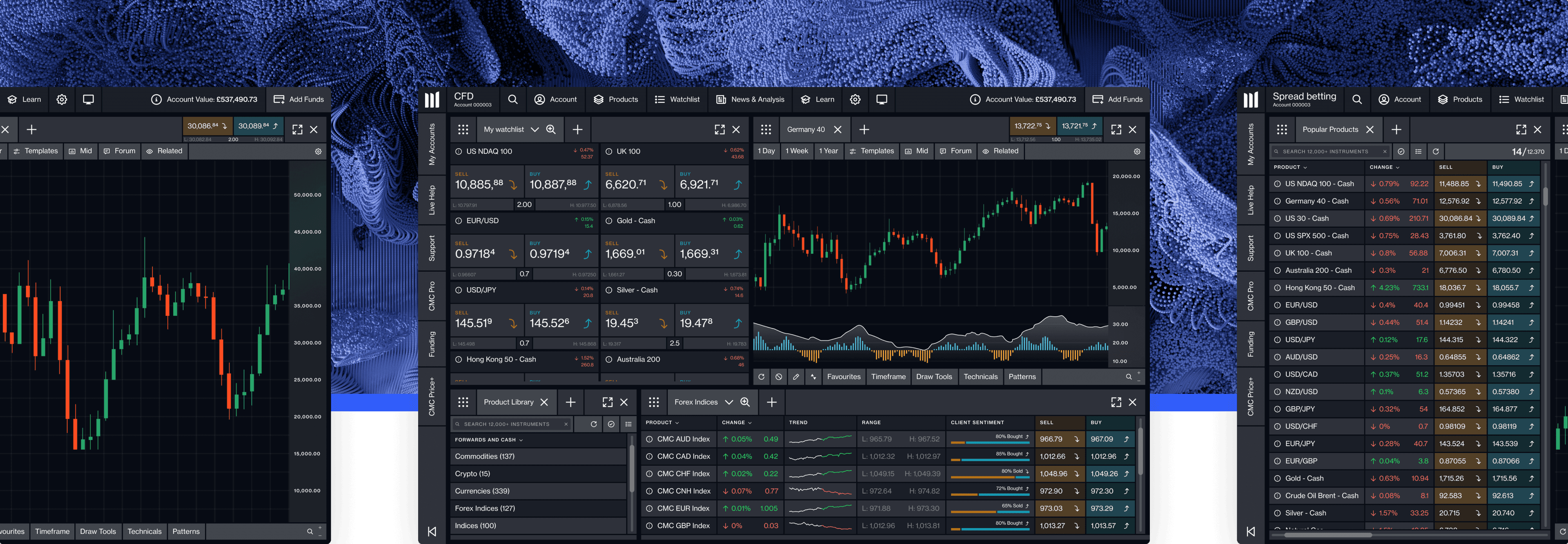
30 bestselling investing books of all-time for beginners
This article covers a list of bestselling investing books when it comes to strategies, asset allocation, and investing in the stock market. Learn the stock market strategies of investing greats like Warren Buffett and top hedge fund managers, with topics including technical and fundamental analysis, portfolio creation, dividend investing, and more.
1. Security Analysis by Benjamin Graham
Considered the godfather of value investing, Benjamin Graham was the mentor of Warren Buffett. The book reveals how to analyse companies based on their financial statements, particularly focusing on those that may be undervalued in the marketplace. With this knowledge, the author believes investors are able to make better decisions and improve their stock picking.
2. The Intelligent Investor by Benjamin Graham (updated by Jason Zweig)
If Graham’s Security Analysis is a text about analysing accounting statements, then The Intelligent Investor is more geared toward the average investor who wants to build a portfolio and learn some of the important details about value investing.
3. A Random Walk Down Wall Street by Burton Malkiel
Burton Malkiel is a Princeton University economist who has served on the boards of Vanguard and Prudential Financial. This book introduced random walk theory, which states that returns are random and thus it will be hard to consistently beat market index returns. The book focuses on passive investing techniques and asset allocation designed to capture market returns efficiently.
4. The Little Book of Common Sense Investing by John C Bogle
John Bogle, the founder and former CEO of Vanguard, is credited with introducing the first passive investing market index fund. The focus of the book is on how to allocate capital to index funds, keep costs low, rebalance your portfolio and attain market average returns with minimal effort.
5. One Up on Wall Street by Peter Lynch
Peter Lynch was the best performing fund manager in the world between 1977 and 1990 while he managed the Fidelity Magellan Fund. He is now vice chairman of Fidelity Management and Research Company. Lynch believes – and teaches in the book – that average investors can beat index fund returns by doing a little research and investing in assets they know something about or have some life experience with.
6. Beating the Street by Peter Lynch
In Beating the Street, the follow-up to One Up on Wall Street, Lynch goes into more detail about how to find great companies and make better investment decisions, providing more examples. He also looks at mutual fund investing and how to assemble and portfolio with proper portfolio diversification.
7. Common Stocks and Uncommon Profits by Philip A Fisher
Buffett recommends the book and Philip Fisher by saying “I am an eager reader of whatever Phil has to say, and I recommend him to you.” This book breaks the down the steps that Fisher goes through to find great investments, build a portfolio and hopefully build wealth as well. These steps include when to buy, what to buy and when to sell. He also discusses market psychology and the cycles of the stock market among many other tips on stock picking.
8. The Essays of Warren Buffett by Warren Buffett
In Beating the Street, the follow-up to One Up on Wall Street, Lynch goes into more detail about how to find great companies and make better investment decisions, providing more examples. He also looks at mutual fund investing and how to assemble and portfolio with proper portfolio diversification.
9. Warren Buffett and the Interpretation of Financial Statements by Mary Buffet and David Clark
With inside access, Buffett’s former daughter-in-law Mary has written several bestselling books on his investing methods. In this book, she outlines what he looks for in the companies he invests in and how to find those in the company’s financial statements. Graphics are included to help investors see what they are looking for as navigating financial statements can be daunting for many.
10. Market Wizards by Jack D Schwager
Jack Schwager interviews top traders and investors with stellar track records and gets them to reveal some of their secrets, processes and strategies. Interviews in this book include historical heavyweights such as Paul Tudor Jones, Ed Seykota, Richard Dennis and many more. Schwager is an expert in his own right, having published a number of bestselling books on technical and fundamental analysis.
11. The New Market Wizards by Jack D Schwager
Schwager’s Market Wizards series continues with this follow-up featuring interviews with Tom Basso, Linda Raschke, William Eckhardt and many more. These may not be household names, but each of the traders interviewed have racked up years of above-average returns. The series continued with Stock Market Wizards, Hedge Fund Market Wizards and Unknown Market Wizards.
12. You Can Be a Stock Market Genius by Joel Greenblatt
Joel Greenblatt is the founder and managing partner of Gotham Asset Management, the successor to Gotham Capital. Between 1985 and 1999, when the book was published, his hedge fund averaged 40% returns annually. This book documents some lesser-known ways to make profits, including looking at warrants/rights offerings, merger arbitrage and even bankruptcies as investing opportunities.
13. The Little Book That Still Beats the Market by Joel Greenblatt
This later book by Greenblatt lays out a precise investment strategy that has been proven to beat market index returns, referred to as the magic formula. The strategy relies on holding stocks for a period of approximately one year. A couple of positions are accumulated each month throughout the year. This is the follow-up to The Little Book That Beats the Market.
14. Reminiscences of a Stock Operator by Edwin Lefèvre
Edwin Lefèvre wrote eight books and was a journalist for The Saturday Evening Post. His most famous book was this one, which is based on the life and insights of legendary trader Jesse Livermore. It reads as a novel, providing the strategies and psychology of a man who made and lost millions of dollars trading the markets in the early 1900s.
15. Rich Dad Poor Dad by Robert Kiyosaki
Robert Kiyosaki is a world-renowned expert on personal finance. This book focuses on developing financial literacy with insights on how to build wealth through investing, real estate and owning a business. Its focus is more on changing how we think about money and work, rather than specific stock investing strategies.
16. Irrational Exuberance by Robert J Shiller
Robert Schiller is a Nobel Prize winner and Yale professor. This book is a cautionary tale about how markets can get over-extended, which results in big drops in asset prices. The author lays out how and why this happens so investors can be better prepared to see the signs and avoid the danger when it comes.
17. How to Make Money in Stocks by William O’Neil
This bestseller was written by the founder of Investors.com (formerly IBD). O’Neil is the creator of the CANSLIM method for stock investing, upon which this book is based. He looked at the best-performing stocks over many decades and found the common elements between them. This book lays out what those elements are, how to find stocks that have these elements and when to buy and sell them. It includes elements of thematic investing and trading top names in strong sectors and industries.
18. Poor Charlie’s Almanack by Charlie Munger, compiled by Peter D Kaufman
Munger is Buffett’s partner in running Berkshire Hathaway. This book is a collection of speeches from the famed investor, focusing on areas such as stock investing, personal finance, market conditions, life and building wealth. The title is a tribute to Benjamin Franklin, who published a yearly book entitled Poor Richard’s Almanack.
19. The Richest Man in Babylon by George S Clason
Clason is a lesser-known author, who wrote pamphlets with financial parables on them for banks and insurance companies. The pamphlets were later compiled into this book, which has been in print since 1926 and is considered a classic. The book centres around personal finance advice such as paying yourself first, living within your means, saving and investing, and home ownership.
20. The Millionaire Next Door by Thomas J Stanley and William D Danko
Thomas Stanley was a professor at several universities and authored seven books. The Millionaire Next Door is his most popular work. It looks at where most millionaires are situated within society and finds that they are typically within blue-collar or middle-class neighbourhoods. The book reveals the reason for this along with wealth-building tips.
21. The Little Book of Value Investing by Christopher H Browne
Christopher Browne was the managing director of Tweedy, Browne Company and Tweedy, Browne Funds. In this book, the author lays guidelines on how to buy company shares that are trading at depressed prices relative to their true value, including how to identify them and when to buy and sell. Value investing is one style of investing, with growth investing being another.
22. Extraordinary Popular Delusions and the Madness of Crowds by Charles Mackay
This book by Scottish journalist Charles Mackay was first published in 1841. It highlights many examples of how mania can take hold, pushing asset prices or popular opinion to such an extreme that it results in catastrophe. The book is split into three sections, which look at economic bubbles, peculiar follies and philosophical delusions.
23. Fooled by Randomness by Nassim Nicholas Taleb
Taleb is a statistician and former trader and was a professor at several universities. Fooled by Randomness says that people – and therefore investors – are largely unaware of how random life is. They mistake randomness for skill or look for explanations when there are none. By better understanding randomness, readers and investors are less likely to be drawn down rabbit holes that only end in frustration.
24. The Black Swan by Nassim Taleb
This follow-up book by Taleb highlights how improbable events have a disproportionate impact. It means that markets can misprice assets because these improbable events, which he calls black swans, are not factored into share prices. It also means that markets can overreact when they do occur. Taleb encourages readers to build “robustness” against these negative events, which do happen with some regularity.
25. The Money Game by Adam Smith
The author, who uses a pseudonym, is the host of Emmy Award winning TV series Adam Smith’s Money World. The book takes readers on a journey, showing how the stock market has a deeper impact than share prices alone. Filled with tips on how to grow money and trade trends and different types of investments, the main focus is on understanding ourselves to effectively trade the market and build wealth.
26. Trading in the Zone by Mark Douglas
Mark Douglas is a trading psychology expert who started coaching traders in 1982. Trading in the Zone is all about developing the right mindset for success in the financial markets, including overcoming limiting beliefs and gaining more consistency. Douglas believes that it doesn’t matter how good an investment strategy is if the trader lacks the confidence and mindset to implement it properly.
27. Get Rich with Dividends by Marc Lichtenfeld
Marc Lichtenfeld is chief income strategist at The Oxford Club and senior editor of The Oxford Income Letter. Learn how to potentially make double-digit yearly returns with an easy-to-implement strategy that doesn’t take up much time. According to the author, dividends are responsible for 44% of the S&P 500’s total return over the past 80 years. Therefore, knowing a little more about them can make a big difference in a portfolio.
28. Good to Great by Jim Collins
Jim Collins taught at Stanford Graduate School of Business and founded a management research company to investigate leadership teams and what makes them tick. Good to Great looks at why some companies become so successful, while others never do. He highlights the traits that make them great so investors can look for those in stocks. His follow-up book, Built to Last, looks at why some companies endure, and others do not.
29. How to Trade Like a Stock Market Wizard by Mark Minervini
Mark Minervini is a former US Investing Championship winner and was featured in Stock Market Wizards by Jack Schwager. Minervini is more of a swing trader than an investor and is not an advocate of buy and hold. The Minervini approach is a method for finding stocks that are likely to keep moving higher. Then it is a matter of selecting the timing to buy and sell. The book also addresses the phases of the market, which helps to determine whether it is a good time to be trading or not.
30. Technical Analysis of the Financial Markets by John J Murphy
John Murphy was a technical analyst for CNBC and director of the technical analysis futures division for Merrill Lynch. This nearly 600-page text is for anyone interested in learning about technical analysis, which is the study of price charts, statistics and price patterns. Think of this book as a tool belt. An investor doesn’t need to know all the technical information presented, but they can choose a few insights, see how they are used and then begin implementing them in their own trading.
CMC Markets does not endorse or offer opinion on the trading strategies used by the author. Their trading strategies do not guarantee any return and CMC Markets shall not be held responsible for any loss that you may incur, either directly or indirectly, arising from any investment based on any information contained herein.
One of the most popular stock investing books of all time, which is also easy to understand and read, is One Up on Wall Street by Peter Lynch. It’s also worth checking out our investing guides section on the website, which can guide you through the ins and outs of thematic investing.
One of the top books specifically on dividend investing is Get Rich with Dividends by Marc Lichtenfeld, now available in a second edition. Learn more about dividend investing with us.
Disclaimer: CMC Markets is an execution-only service provider. The material (whether or not it states any opinions) is for general information purposes only, and does not take into account your personal circumstances or objectives. Nothing in this material is (or should be considered to be) financial, investment or other advice on which reliance should be placed. No opinion given in the material constitutes a recommendation by CMC Markets or the author that any particular investment, security, transaction or investment strategy is suitable for any specific person. The material has not been prepared in accordance with legal requirements designed to promote the independence of investment research. Although we are not specifically prevented from dealing before providing this material, we do not seek to take advantage of the material prior to its dissemination.
Any questions?
Email us atWe're available whenever the markets are open, from Sunday night through to Friday night.

